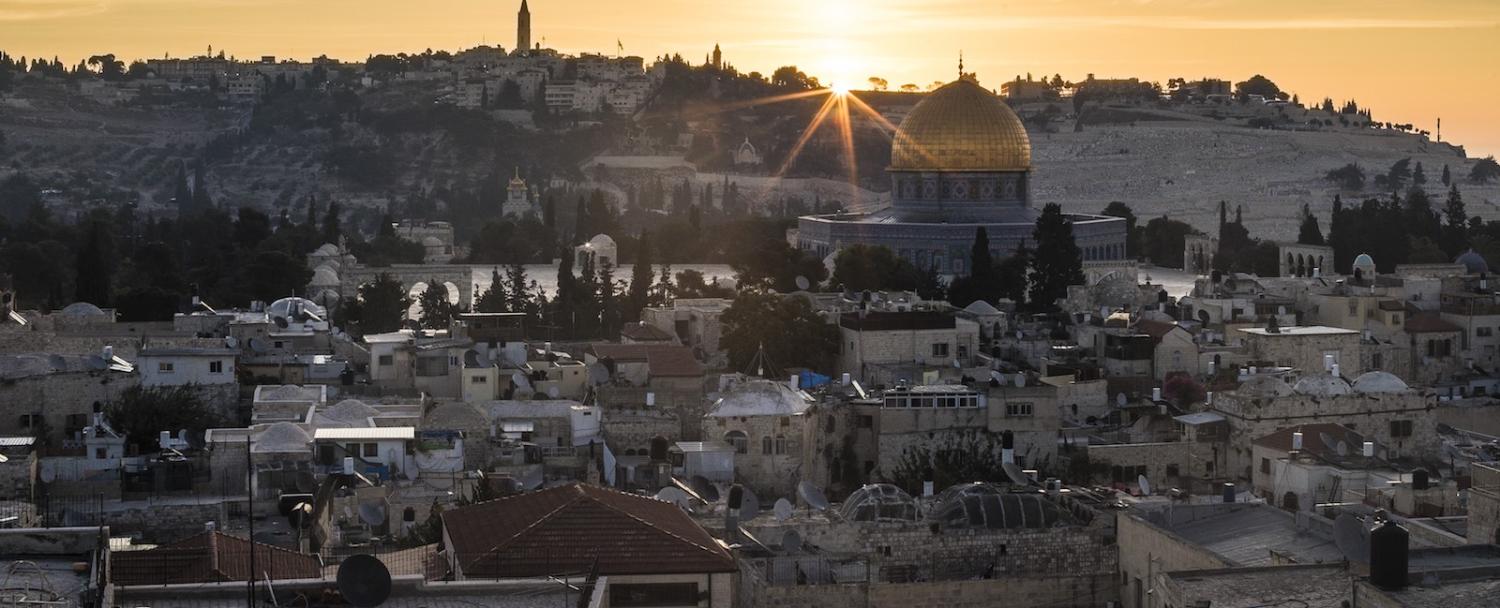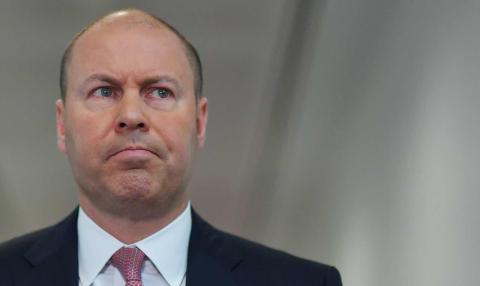Labor was quick to pounce on a “desperate” Scott Morrison to accuse him of breaking “bipartisan foreign policy” after the prime minister flagged the prospect that Australia could recognise Jerusalem as the capital of Israel.
Which is true enough on the specifics. But broad questions about the Israel-Palestinian dispute are actually one of those rare issues in Australian foreign policy where the two major parties quite often disagree – and internal fights within the parties break out, too.
The Howard government switched Australia’s votes on the Israel occupation at the UN General Assembly in the early 2000s, only for Labor to change back again, and the Coalition to change again on returning to office.
Of course, Labor’s main point was that context matters. Morrison denied his announcement on Tuesday – along with the possibility of moving the Australian embassy from Tel Aviv and a review of the Iran nuclear deal – had anything whatsoever to do with a byelection on Saturday, which will decide whether his government maintains its majority in parliament.
But he did acknowledge the influence of Dave Sharma, the former Australian ambassador to Israel and the Liberal party candidate running in what is shaping as a closely fought race. Sharma had previously advocated for a change of Australia’s position after Donald Trump shifted the US embassy from Tel Aviv to Jerusalem in May, noting recognition need not necessarily involve moving the embassy.
“When people say sensible things, I think it is important to listen to them,” Morrison said in a press conference on Tuesday. “And particularly, when they have the experience of someone like Dave Sharma.”
Coincidently enough, Sharma’s experience also happens to include being right in the middle of an earlier breakout of political hostility in Australia about the Israel-Palestine conflict.
Back in 2014, when Sharma was posted to Israel, he attended a meeting in the East Jerusalem office of Israel’s then Housing and Construction Minister, Uri Ariel. All of which seems fairly straightforward diplomatic business – only Ariel released photos of the two talking in his office.
Local media leapt on the story, claiming few diplomats would attend official meetings with Israeli politicians in that part of the city, which is seen as occupied land by Palestinians and a future capital. Palestinian negotiator Saeb Erakat fired off a stinging letter to Australia, warning:
Australia’s ambassador to Israel meeting with Israeli officials in East Jerusalem has the effect of attempting to legitimise the illegal situation on the ground … [and] as such, Australia’s actions are tantamount to complicity in ongoing Israeli violations of international laws of war.
To which Australia scrambled a response, pointing out its continued support for a negotiated two-state solution, and nothing had really changed, and the whole episode seemed to fade away.
Until…
In late evening senate hearings a month later, the Greens lobbed a question about Sharma’s meeting. Then attorney general George Brandis, speaking on behalf of the foreign minister, decided to take issue with the term “occupied” in the question to refer to East Jerusalem, and refused to use it. The next day he read a statement to say:
The description of East Jerusalem as ‘Occupied East Jerusalem’ is a term freighted with pejorative implications, which is neither appropriate nor useful.
This sparked two weeks of controversy, condemnation of Australia by the Organisation of Islamic Co-operation, and warnings from Arab nations about potential sanctions. The head of one Western Australian farm lobby wistfully observed at the time, “Life is hard enough without pointing both barrels at each foot and firing”.
And subsequently Australia again scrambled a response, pointing out its continued support for a negotiated two-state solution, and that nothing had really changed, and went back to using the term “occupied”.
There is a plenty of history. The Howard government switched Australia’s votes on the Israel occupation at the United Nations General Assembly in the early 2000s, only for Labor to change back again, and the Coalition to change again on returning to office.
Labor also had its own conflicts in government. In 2011, Palestinians sought an increased status at the United Nations. Then foreign minister Kevin Rudd argued Australia should abstain in a vote, while prime minister Julia Gillard wanted to oppose. Gillard won a first round, overruling Rudd for Australia to reject a bid by Palestinians to be represented in UNESCO, only to be rolled by her own cabinet a year later when another vote was set to be put on Palestinian representation in the General Assembly.
The argument about recognition of Palestine has spilled on for Labor in opposition, the party eventually settling on a platform that “a future Labor government will discuss joining like-minded nations who have already recognised Palestine”.
That word, “discuss”, has a similar kind of political meaning to the language Morrison used in his announcement on Tuesday – that “a discussion is not a decision”.
After all, as the Prime Minister went on to explain, “We are committed to a two-state solution and nothing has changed.”


